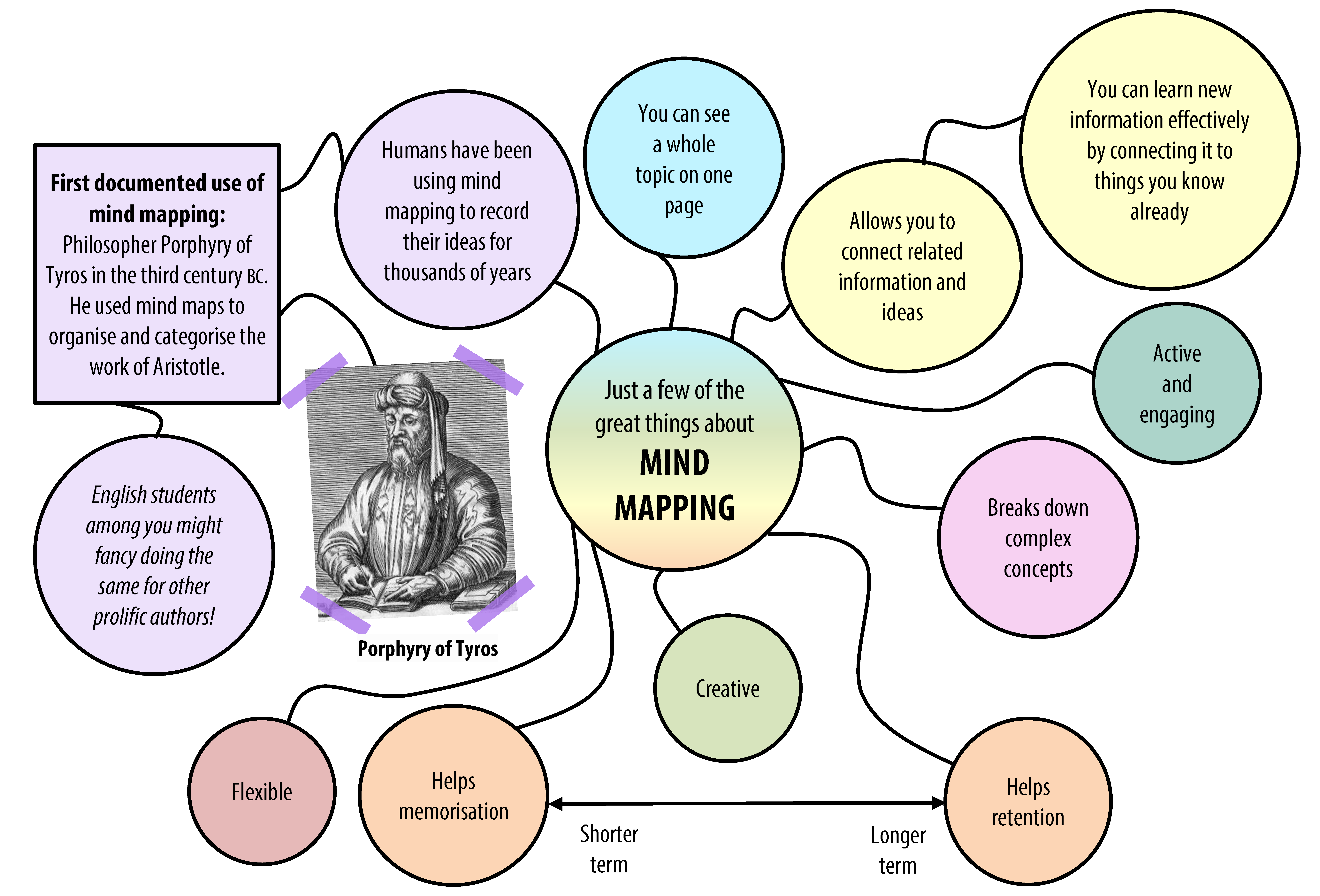3 Key Revision Tips for Visual Learners

As teacher Neil Fleming explained in his VAK model, there are 3 main types of learner:
- Visual
- Auditory
- Kinaesthetic
If you’re a student who learns and revises best using visual materials, then here are 3 key revision techniques for you:
❶ Timetabling
This is an important technique for every type of learner but particularly for visual learners as seeing what your day will look like from the beginning will make your plans crystal clear. These are our top tips on how to timetable effectively:
| Monday | Tuesday | Wednesday | |
|---|---|---|---|
| 9–10 | Make it realistic! Think carefully when making up your timetable about how much you will be able to fit it. If you don’t schedule in enough, you will be missing out on revision time. If you schedule in too much, you’ll either exhaust yourself or be unable to achieve what you set out to achieve, which can be very demotivating! It’s all about balance. |
| Make your days varied. Use different styles of revision to keep yourself motivated and take more in. |
| 10–11 |
| Eliminate distractions during scheduled revision time. Minimise the temptation of distractions by:
|
|
| 11–12 | Prepare everything you need before you sit down to study so that you don’t need to keep getting up to get things once you’ve settled in to revise. |
| Schedule some specific time for breaks. Also take some time off to do fun things. This will help you stay relaxed and motivated. |
So… how do I start?
Create your own template based on the example above or find one on the Internet. Make sure you include spaces not just for the subject but also the content you are planning to cover during each session to ensure that you focus, prioritise and get the most out of your revision time. Then print it and hang it on your wall.
Planning on a Friday for the following week will mean you are ready to get going straight away. You can tick or highlight each section you complete as you go. However, make sure you don’t waste time – timetabling doesn’t count as revision, but it should keep you motivated and on track.
❷ Mind mapping
Another fantastic way of revising is to use the mind map technique. Below are some key tips that will help you to remember important information in bite-size amounts. Mind maps can be hung up on your walls, so that you can take in knowledge as you look at them.
If you’re a Sherlock fan, you could think of mind mapping as a much easier version of a ‘mind palace’, a technique in which you link information to rooms within a visual building in your mind and ‘walk’ through this building in order to recall that information.

❸ Colour-coding
Colour-coding helps you to organise and memorise your notes. You could colour-code using:
- Highlighters
- Coloured pens
- Sticky notes
- Sticky tabs
Verb
Adjective
Conjunction
Pronoun
Preposition
For example:
If you are studying for English Language exams, you could colour-code word classes.
or:
Interrogative
Exclamative
Imperative
You could colour-code types of sentence. Include a key to ensure that you remember the colour associations. Does that seem like something that would be useful for you? If so, great!
Transition metals
Noble gases
Other non-metals
However, if you’re working towards a Science qualification, you might be more likely to want to categorise elements. Whether it’s potassium, gold, helium or oxygen, you’ll be able to tell their category at a glance and associate them which each other and the chosen colour.
Use a system of colours that works for you and for the content you are revising.
That’s it! These three helpful techniques will help you to revise for your exams effectively by making the most of how you learn best – visually!
Powered by ZigZag Education, eRevision is an interactive online platform designed to motivate GCSE and A Level students and boost exam success.
Find out more about how eRevision can help you revise or see the list of subjects available.



